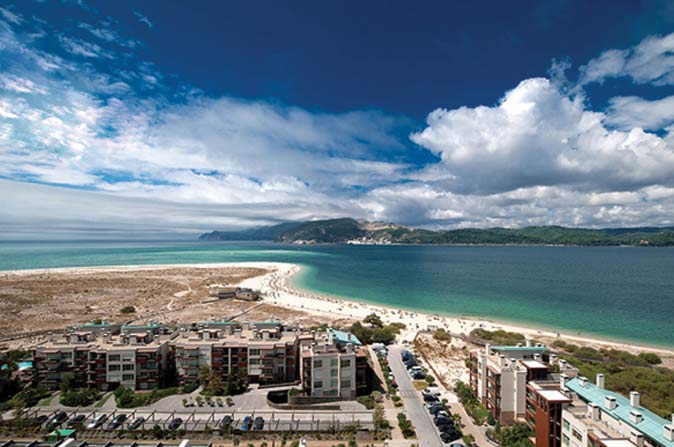Real Estate & Construction / Portugal
Portuguese property rebuilds on firmer foundations
The market is showing renewed dynamism – driven above all by foreign money – after years of stagnation as a result of the unprecedented financial crisis

Troia Peninsula is a major tourism and real estate development near the capital.
In the depths of the recession, transactions all but stopped and many developers went bust. Now things are looking up for the survivors. Figures from realtors show 47,900 homes changed hands in the first half, up 3% on the year, with foreign money, thanks to the ‘golden visa’ and non-habitual resident schemes. After years in retreat, estate agents are expanding their networks.
Rents for prime Lisbon office space in the first quarter were up on the year for the first time since 2010, and occupancy rates are better. Cushman & Wakefield projects €800m turnover in the segment this year, up from €322m. It expects developers to review shelved projects in central Lisbon. Foreign investors seen sniffing around include Global Asset Capital (which bought EDP’s headquarters) and Merlin, whose stockmarket debut means €1.5bn to invest. China’s insurance companies since the end of 2012 are allowed to put up to 20% of funds into real estate, and are potential investors, too.
“For years they invested in the US and UK; now they’re looking at Europe,” says José António de Mello manager of Lisbon fund Selecta. “A lot of liquidity is going to come here.” June saw regulatory approval of IMO ECADINT, Portugal’s first property fund with Chinese capital. It recently had its second roadshow in Shanghai for qualified investors, but China-based investment group Ecadint International already provided most of its initial €30m funding.
“We want to enter Europe but Portugal is our base,” says Ecadint’s vice president Han Lin, citing its long involvement in Angolan construction. “We know more about its culture and people.”The fund will start with office and residential opportunities in Iberia before looking elsewhere in Europe. There are factors weighing on the market. GDP expanded 0.6% in the second quarter, but retail spending has faltered. Still, evidence of a turnaround is mounting.
